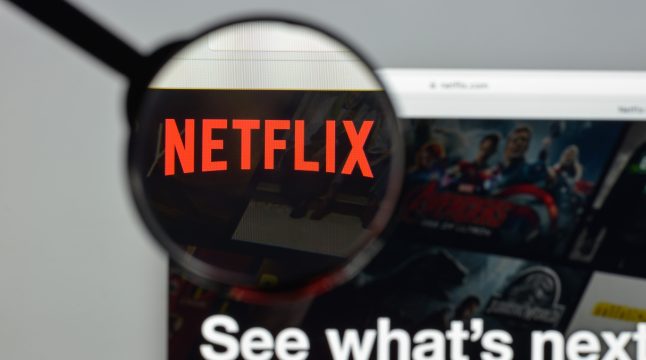
Netflix Slides Despite Record Revenue, Hurt by Unexpected Tax Charge
Netflix shares tumbled over 8% in Wednesday trading following a disappointing third-quarter earnings report that missed both revenue and profit expectations. While the streaming giant posted record quarterly revenue of $11.51 billion—up 17.2% year-over-year—an unexpected $619 million expense related to an ongoing dispute with Brazilian tax authorities significantly dampened results.
The stock closed at $1,122.62, down $118.73 or 9.56% as of 10:37:50 AM EDT on October 22, 2025, representing one of the company’s steepest single-day declines in recent months despite otherwise healthy subscriber growth and engagement metrics.
Brazilian Tax Charge Drags Down EPS and Operating Margins
Netflix’s third-quarter earnings per share came in at $5.87, significantly below both analyst expectations of $6.94 and the company’s own guidance of $6.87, though still above the $5.40 reported in the same quarter last year. The primary culprit was an approximately $619 million expense tied to an ongoing dispute with Brazilian tax authorities, a charge that wasn’t included in Netflix’s forecast. Revenue of $11.51 billion just missed Bloomberg consensus estimates of $11.52 billion and the company’s guidance of $11.53 billion, though it still represented robust 17.2% growth compared to $9.82 billion in Q3 2024.
The company’s operating margin took the biggest hit, coming in at 28% versus its forecast of 31.5%. Netflix stated it would have exceeded its margin target excluding the Brazilian tax charge and doesn’t expect the issue to materially affect future results. However, the company has lowered its full-year 2025 operating margin forecast to 29% from its prior expectation of 30%, reflecting the impact of the tax matter. Operating income rose 7.7% year-over-year to $2.55 billion, but fell well short of analyst projections.
Looking ahead, Netflix provided Q4 guidance that exceeded Wall Street expectations, forecasting revenue of $11.96 billion compared to analyst estimates of $11.90 billion. The company also expects Q4 earnings of $5.45 per share, higher than analyst estimates of $5.42. For full-year 2025, Netflix expects revenue of $45.1 billion, toward the upper end of its previous $44.8 billion to $45.2 billion forecast range.
Join our Telegram group and never miss a breaking digital asset story.
Record Viewership and Ad Growth Offset Investor Concerns Over Valuation
Despite the earnings miss, Netflix demonstrated continued strength in content performance and engagement. The company reported its best-ever quarter of viewership on US-based smart TVs according to Nielsen data, averaging an 8.6% viewership share from July through September—far higher than any other paid streaming service. The quarter featured standout hits including the animated breakout “KPop Demon Hunters,” which became Netflix’s most-viewed film of all time with 325 million views, and the Canelo vs. Crawford fight, which drew over 41 million global viewers and was the most-watched men’s championship boxing match of the century.
The company’s $7.99 ad-supported tier continues to gain traction, with Netflix reporting its strongest ad sales quarter to date. Ad revenue is on track to more than double in 2025 from a still-small base, following a US upfront that saw commitments more than double year-over-year. JPMorgan analyst Doug Anmuth projects advertising revenue will increase from $1.4 billion in 2024 to $2.9 billion in 2025 and $4.2 billion by 2026. Netflix recently expanded its advertising reach through a new Amazon DSP integration across 11 markets.
However, valuation concerns persist as the stock trades at roughly 45 times forward earnings—a steep premium that has left analysts divided. Shares have climbed about 40% year-to-date but have lagged the broader market recently amid questions over engagement growth and rising competition from AI-driven content platforms. The stock’s average analyst price target stands at $1,344.53, suggesting potential upside from current levels, though recent controversies and external pressures have added scrutiny to the streaming giant’s premium valuation.
Disclaimer: The author does not hold or have a position in any securities discussed in the article. All stock prices were quoted at the time of writing.




